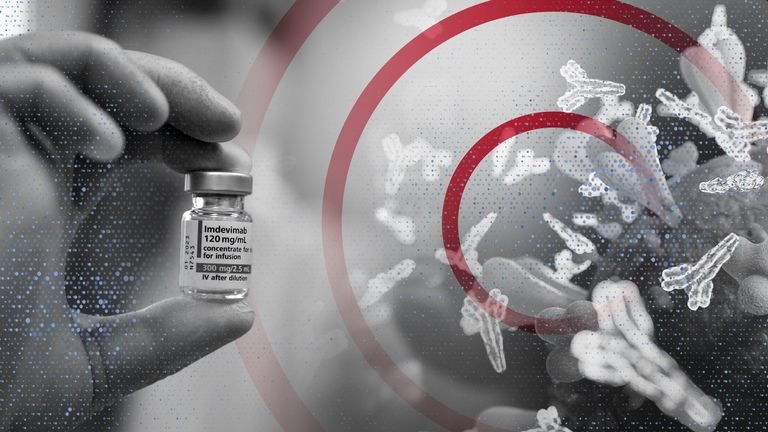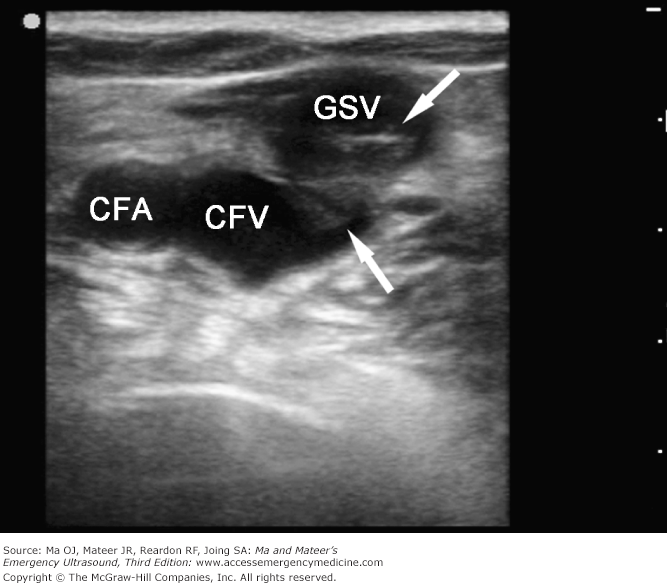COVID-19 virus was first identified in December of 2019 in Wuhan, China. It was then declared a global pandemic in March of 2020. With new diseases it takes time for scientists to study them and develop treatments. The good news is that there are some promising treatments for those who get sick with the COVID-19 virus. One of them is monoclonal antibody infusion therapy. Monoclonal antibodies are given intravenously as infusion therapy before patients need hospitalization. There are also treatments available for people who are hospitalized with COVID-19.
What COVID-19 treatment is there for people outside the hospital?
If you are diagnosed with COVID-19 but aren’t sick enough to be hospitalized, you may think there isn’t much you can do.
- self-isolate
- get rest
- stay hydrated
- take fever-reducing medicine, if needed
Talk to your doctor about monoclonal antibody infusion therapy. There is evidence it is effective in preventing severe illness.
What are monoclonal antibodies and How does monoclonal antibody infusion therapy work?
Antibodies are naturally produced by your body to fight off infections. When your body is introduced to a new virus such as COVID-19, it does not have the antibodies to fight it off. That is where monoclonal antibodies come in. Monoclonal antibodies are created in a laboratory. They can target a particular virus or infection such as COVID-19.
Monoclonal antibodies are given by IV to people diagnosed with COVID-19. This therapy uses COVID-19 antibodies to help a person’s body fight off the infection. Research suggests these antibodies lower the amount of virus — the “viral load” — in a person’s body. People with lower viral loads have more mild symptoms. Reducing the viral load may help prevent hospitalization and death.
Who should get monoclonal antibody infusion therapy?
Treatment is proven effective in reducing symptoms of COVID-19 and boosting your immune system to respond more quickly to the virus. Our providers at Advance ER will ensure you are eligible for treatment before any administration.
You may be a candidate for monoclonal antibody infusion therapy if you are:
1) 65 years of age or older
2) 55 years of age or older with:
Cardiovascular Disease
High Blood Pressure
Chronic Respiratory Diseases
3) Any age with the following symptoms:
Type 1 or 2 Diabetes
Weakened Immune System
Obesity
Kidney Disease
Your child may be a candidate for monoclonal antibody infusion if they are:
4) 12 – 17 years of age and at least 88 pounds with:
Sickle Cell Disease
Asthma/Respiratory Issues
Obesity
Regularly uses a ventilator or feeding tube
Cerebral palsy
Insurance Coverage of Monoclonal Antibody Infusion Therapy Treatment for COVID-19
The following investigational monoclonal antibody therapies are available under FDA emergency use authorization (EUA):
Casirivimab and imdevimab, administered together (EUA issued November 21, 2020, updated June 3, 2021)
Bamlanivimab and etesevimab, administered together (EUA issued February 9, 2021)
Sotrovimab (EUA issued May 26, 2021)
Tocilizumab (EUA issued June, 24 2021)
The FDA authorized the use of these monoclonal antibody infusion therapy to treat mild-to-moderate COVID-19 in adults and pediatric patients when both of these apply:
- The patient has a positive COVID-19 test result
- The patient is at high risk for progressing to severe COVID-19, hospitalization, or both
Health care providers may administer these monoclonal antibody therapies only in settings where they have both of these:
- Immediate access to medications to treat a severe infusion reaction, such as anaphylaxis
- The ability to activate the emergency medical system (EMS)
During the COVID-19 public health emergency (PHE), Medicare will cover and pay for these infusions (when furnished consistent with their respective EUAs) the same way it covers and pays for COVID-19 vaccines.
Note: Medicare will only cover and pay for bamlanivimab (administered alone) if it was furnished, consistent with the terms of the EUA, between November 10, 2020 – April 16, 2021.
CMS approach to paying for these products as COVID-19 vaccines during the PHE allows a broad range of providers and suppliers to administer these treatments, including but not limited to:
Freestanding and hospital-based infusion centers
Home health agencies
Nursing homes
Entities with whom nursing homes contract to administer treatment
Health care providers administering the infusions of monoclonal antibody products to treat COVID-19 will follow the same enrollment process as those administering the COVID-19 vaccines. Get provider enrollment information.
Coding for Monoclonal Antibody Infusion Therapy Products to Treat COVID-19
CMS identified specific code(s) for each monoclonal antibody product to treat COVID-19 and specific administration code(s) for Medicare payment:
| Product | EUA Effective & Revocation Date(s) | Specific Code | Administration Code |
| Eli Lilly and Company’s Antibody Bamlanivimab (LY-CoV555) | November 10, 2020 – April 16, 2021 | Q0239 | M0239 |
| Note: On April 16, 2021, the FDA revoked the EUA for bamlanivimab when administered alone. | Long descriptor: Injection, bamlanivimab-xxxx, 700 mg | Long Descriptor: Intravenous infusion, bamlanivimab-xxxx, includes infusion and post administration monitoring | |
| Short descriptor: Bamlanivimab-xxxx | Short Descriptor: Bamlanivimab-xxxx infusion | ||
| Regeneron’s Antibody casirivimab and imdevimab (REGN-COV2) (ZIP) (ZIP) | November 21, 2020 – TBD | Q0243 | M0243 |
| Long descriptor: Injection, casirivimab and imdevimab, 2400 mg | Long Descriptor: Intravenous infusion or subcutaneous injection, casirivimab and imdevimab includes infusion or injection, and post administration monitoring | ||
| Short descriptor: Casirivimab and imdevimab | Short Descriptor: Casirivi and imdevi inj | ||
| Q0244 (Code effective 06/03/2021 and reflects updated dosing regimen) | |||
| Long descriptor: Injection, casirivimab and imdevimab, 1200 mg | |||
| Short descriptor: Casirivi and imdevi 1200 mg | |||
| Regeneron’s Antibody casirivimab and imdevimab (REGN-COV2) (ZIP) | November 21, 2020 – TBD | Q0243 | M0244 |
| Note: While the product EUA was issued on November 21, 2020, this administration code is effective May 6, 2021 | Long descriptor: Injection, casirivimab and imdevimab, 2400 mg | Long Descriptor: Intravenous infusion or subcutaneous injection, casirivimab and imdevimab includes infusion or injection, and post administration monitoring in the home or residence; this includes a beneficiary’s home that has been made provider-based to the hospital during the COVID-19 public health emergency1 | |
| Short descriptor: Casirivimab and imdevimab | Short Descriptor: Casirivi and imdevi inj hm | ||
| Q0244 (Code effective 06/03/2021 and reflects updated dosing regimen) | |||
| Long descriptor: Injection, casirivimab and imdevimab, 1200 mg | |||
| Short descriptor: Casirivi and imdevi 1200 mg | |||
| Eli Lilly and Company’s Antibody Bamlanivimab and Etesevimab, (ZIP) | February 9, 2021 – TBD | Q0245 | M0245 |
| Long descriptor: Injection, bamlanivimab and etesevimab, 2100 mg | Long Descriptor: Intravenous infusion, bamlanivimab and etesevimab, includes infusion and post administration monitoring | ||
| Short descriptor: Bamlanivimab and etesevima | Short Descriptor: Bamlan and etesev infusion | ||
| Eli Lilly and Company’s Antibody Bamlanivimab and Etesevimab, (ZIP) | February 9, 2021 (reissued on February 25, 2021) – TBD | Q0245 | M0246 |
| Note: While the product EUA was issued on February 9, 2021, this administration code is effective May 6, 2021 | Long Descriptor: Injection, bamlanivimab and etesevimab, 2100 mg | Long Descriptor: Intravenous infusion, bamlanivimab and etesevimab, includes infusion and post administration monitoring in the home or residence; this includes a beneficiary’s home that has been made provider-based to the hospital during the COVID-19 public health emergency1 | |
| Short Descriptor: Bamlanivimab and etesevima | Short Descriptor: | ||
| Bamlan and etesev infus home | |||
| GlaxoSmithKline’s Antibody Sotrovimab | May 26, 2021 – TBD | Q0247 | M0247 |
| Long descriptor: Injection, sotrovimab, 500 mg | Long Descriptor: Intravenous infusion, sotrovimab, includes infusion and post administration monitoring | ||
| Short descriptor: Sotrovimab | Short Descriptor: Sotrovimab infusion | ||
| GlaxoSmithKline’s Antibody Sotrovimab | May 26, 2021 – TBD | Q0247 | M0248 |
| Long descriptor: Injection, sotrovimab, 500 mg | Long Descriptor: Intravenous infusion, sotrovimab, includes infusion and post administration monitoring in the home or residence; this includes a beneficiary’s home that has been made provider-based to the hospital during the COVID-19 public health emergency1 | ||
| Short descriptor: Sotrovimab | Short Descriptor: Sotrovimab inf, home admin | ||
| Genentech’s Antibody Tocilizumab | June 24, 2021 – TBD | Q02492 | M0249 |
| Long descriptor: Injection, tocilizumab, for hospitalized adults and pediatric patients (2 years of age and older) with covid-19 who are receiving systemic corticosteroids and require supplemental oxygen, non-invasive or invasive mechanical ventilation, or extracorporeal membrane oxygenation (ECMO) only, 1 mg | Long Descriptor: Intravenous infusion, tocilizumab, for hospitalized adults and pediatric patients (2 years of age and older) with covid-19 who are receiving systemic corticosteroids and require supplemental oxygen, non-invasive or invasive mechanical ventilation, or extracorporeal membrane oxygenation (ECMO) only, includes infusion and post administration monitoring, first dose | ||
| Short descriptor: Tocilizumab for COVID-19 | Short Descriptor: Adm Tocilizu COVID-19 1st | ||
| Genentech’s Antibody Tocilizumab | June 24, 2021 – TBD | Q02492 | M0250 |
| Long descriptor: Injection, tocilizumab, for hospitalized adults and pediatric patients (2 years of age and older) with covid-19 who are receiving systemic corticosteroids and require supplemental oxygen, non-invasive or invasive mechanical ventilation, or extracorporeal membrane oxygenation (ECMO) only, 1 mg | Long descriptor: Intravenous infusion, tocilizumab, for hospitalized adults and pediatric patients (2 years of age and older) with covid-19 who are receiving systemic corticosteroids and require supplemental oxygen, non-invasive or invasive mechanical ventilation, or extracorporeal membrane oxygenation (ECMO) only, includes infusion and post administration monitoring, second dose | ||
| Short descriptor: Tocilizumab for COVID-19 | Short descriptor: Adm Tocilizu COVID-19 2nd |
These rates don’t apply if Medicare pays you for preventive vaccines and their administration at reasonable cost (for example, federally qualified health centers, rural health clinics, and hospital-based renal dialysis facilities). Also, as indicated in the 2021 Medicare Physician Fee Schedule Final Rule, we continue to seek additional information from the public for further consideration as we review and establish payment rates for vaccine administration services during the PHE and on a longer term basis.
Get the most current list of billing codes, payment allowances, and effective dates.
Medicare Payment for Administering Monoclonal Antibody Infusion Therapy to Treat COVID-19
CMS updated the Medicare payment rates for the administration of COVID-19 monoclonal antibody products. Effective for services furnished on or after May 6, 2021, the new Medicare payment rate for administering COVID-19 monoclonal antibody products, authorized or approved by the FDA, is approximately $450. This rate applies to all providers and suppliers not paid reasonable cost for furnishing these products. The new rate reflects updated information about the costs involved in administering monoclonal antibody products for different types of providers and suppliers, and the additional resources necessary to ensure providers administer the products safely and appropriately to COVID-19 positive patients. CMS geographically adjusts the rate based on where you furnish the service.
Get the most current list of billing codes, payment allowances, and effective dates.
Read More — CMS: Monoclonal Antibody COVID-19 Infusion










